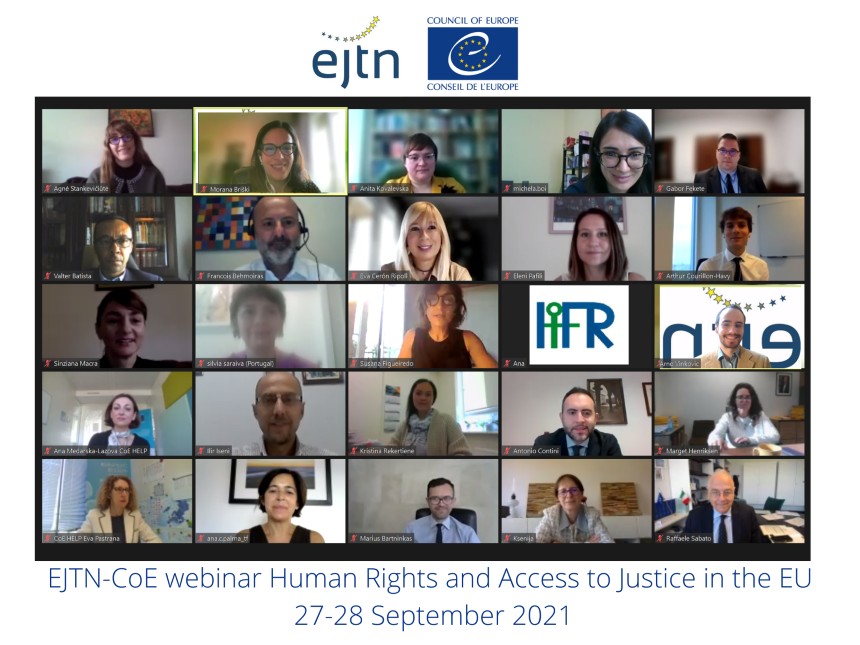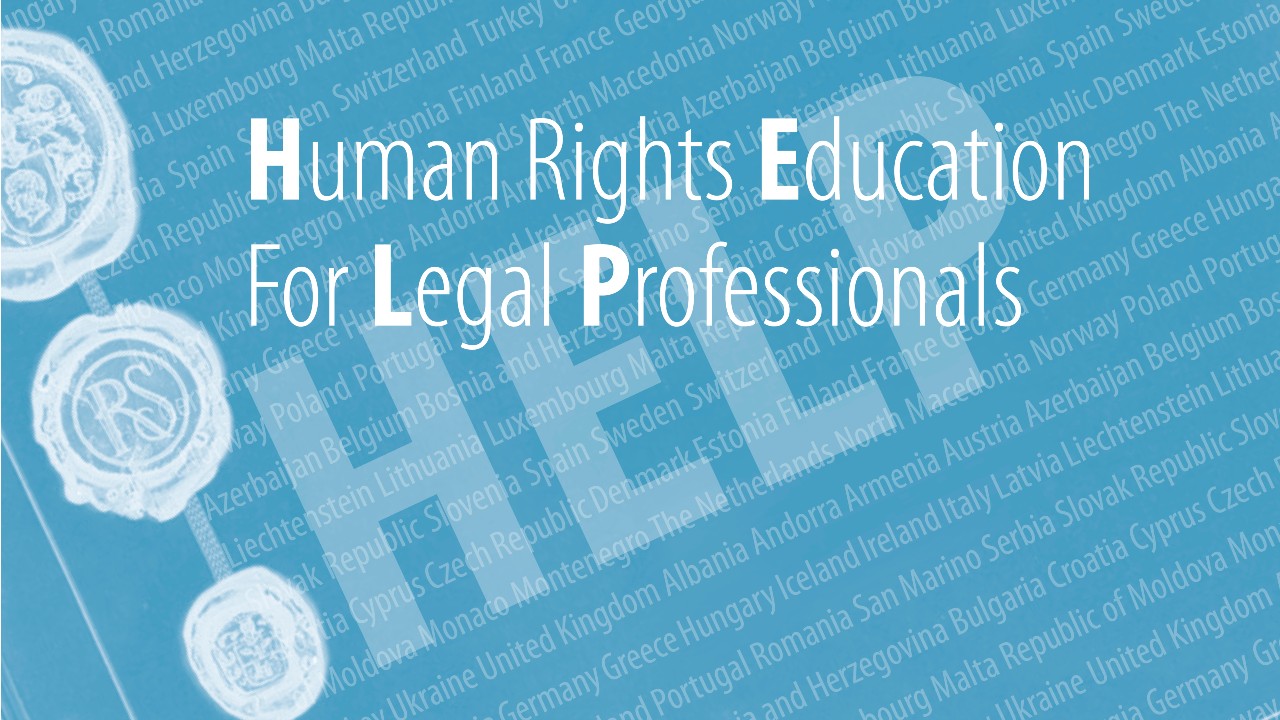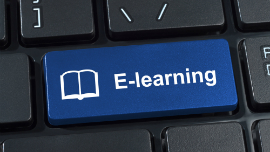The Council of Europe HELP Programme supported the European Judicial Training Network (EJTN), one of its main international partners, in organising and delivering the seminar on Access to Justice, for a group of 30 European judges and prosecutors.
The seminar commenced with an intervention of Judge Ksenija Turković, Vice-President of the European Court of Human Rights, who spoke about the relationship and dialogue between the European Court of Human Rights and domestic courts, illustrating this relationship with examples from the Court’s case law.
Judge Rafaelle Sabato, European Court of Human Rights, presented the most recent case-law of the Court on the topic of access to a court, under Article 6 of the European Convention on Human Rights.
Judge Mirjana Lazarova – Trajkovska, judge in the Supreme Court of the Republic of North Macedonia and former Judge and Section President of the European Court of Human Rights, introduced the participants to the notion of judicial independence as a European Standard. Further details of this topic were explored during the workshop lead by Judge Lazarova – Trajkovska.
Janeta Hanganu, lawyer at the Registry of the European Court of Human Rights, conducted a workshop on specific aspects of the right to access to a court.
Following the presentation of the Council of Europe HELP Programme and its relevant HELP online courses on Procedural safeguards in criminal proceedings and victims’ rights, and Access to Justice for Women, the participants to the seminar benefitted from a presentation on the CEPEJ Guidelines for videoconferencing in judicial proceedings, by Maria Giuliana Civinini, President of the Tribunal of Pisa and President of the CEPEJ Working Group on Cyberjustice.
The seminar was opened by Morana Briski, Senior Court Counsellor, Supreme Court of the Republic of Croatia, Eva Pastrana, Head of Justice and Human Rights Training Division at the Council of Europe and Arno Vinković, European Judicial Training Network (EJTN).
***
Those interested in the topic of access to justice can further explore:
- The HELP course on Procedural safeguards in criminal proceedings and victims’ rights
This HELP course was developed combining both the fundamental procedural rights of accused and suspected persons in criminal proceedings and the rights of victims of crime, encompassing standards from both Council of Europe, mainly the European Convention on Human Rights and the European Court of Human Rights case law, and the EU, focusing on the Roadmap Directives and the relevant CJEU case law. It is primarily aimed at judges, prosecutors and lawyers working in criminal law.
The course is available in a self-learning format on the HELP e-learning platform to any legal professional interested in the topic. It can be followed in English and French as well as Bosnian, Bulgarian, Czech, Macedonian, Spanish, Romanian and Slovak. Its Slovenian version will soon be online too. Those who complete it in self-learning mode can obtain an electronic ‘statement of accomplishment’.
- The HELP course on Access to justice for women
The course provides a comprehensive overview of International and European women’s rights and gender equality standards, case-law and good practices. It is the first HELP course to provide a single resource on gender equality and justice covering the extensive Council of Europe standards, monitoring reports and soft-law instruments on the matter.
The course consists of six substantive modules addressing the concept of access to justice, international and European framework, discrimination on the grounds of sex and gender, gender stereotyping, practical guidance to improve access to justice, gender sensitive approach to the practice of law.
It is also available in a self-learning format on the HELP e-learning platform to any legal professional interested in the topic. It can be followed in English and French as well as Bosnian, Greek, Macedonian and Ukrainian.




